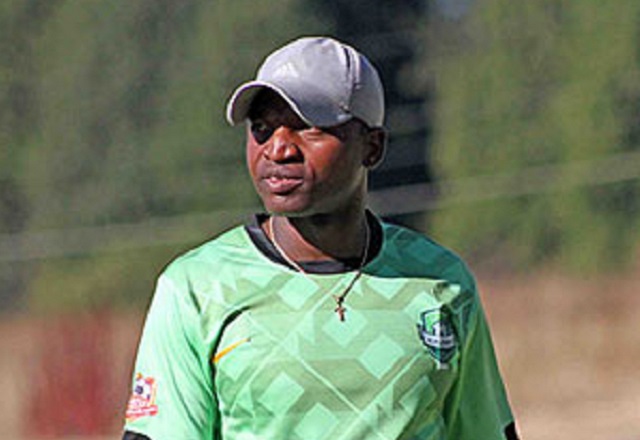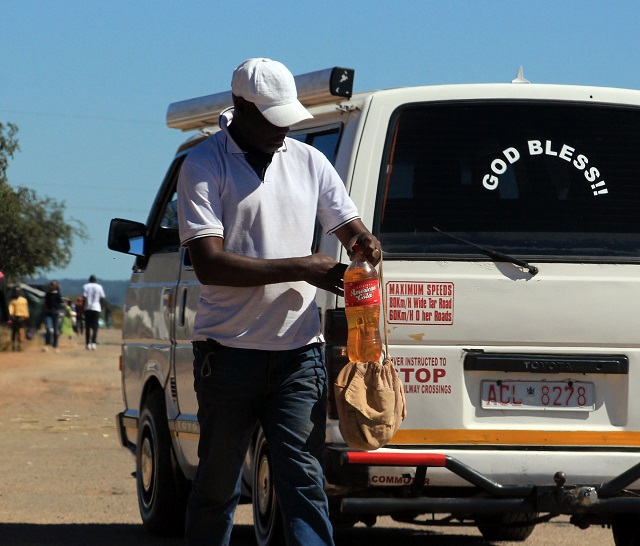K.O rebuilds fallen empire

Bruce Ndlovu
Three years ago South African rapper K.O was on top of the world.
He had just released his blockbuster album Skhanda Republic and was in a fierce three-way tussle with fellow wordsmiths Cassper Nyovest and AKA for the number one spot in South African hip-hop.
Out of the three, some believed that K.O had the better album, as the musical vision which he had pioneered with Teargas was on the brink of full realisation under his star-studded Cashtime Life record label.
In a year in which Doc Shebeleza, Phumakim’, All Eyes on Me and other countless hits had obliterated the charts and finally managed to nudge house music from the top of the charts, his single Cara Cara was widely acknowledged as the most impactful.
If there was any song that best characterised the Skhanda movement, it was Cara Cara.
Over a laidback, swaggering beat, K.O and Cashtime Life’s resident lyricist Kid X traded fun but compelling verses. A catchy chorus ripped from an old Trompies classic gave the track a sing along quality that attracted young listeners while also managing to woo diehard kwaito lovers.
Kwaito was not dead, but instead it had been reborn with K.O and his troop of Skhanda priests playing midwife as it was reborn from the ashes.
In a matter of months bucket hats, gold chains and all stars were back in vogue as South African hip-hop’s heart was snatched from the fancy malls of Sandton and delivered, its heart still pounding, into the dusty streets of Soweto.
The trend was followed in most major urban cities around Africa.
Three years late, however, the tables have turned on the man they call the Skhanda god. A raft of newcomers have pushed him further away from the top spot while the feuding pair of Nyovest and AKA continue to dominate.
Nomuzi Mabhena, Kid X, Ma-E and Maggz have all left Cashtime Life, leaving K.O as the solo artiste on a label that many thought was poised to takeover the industry.
In an interview with Saturday Leisure, the rapper revealed that the blame for the collapse of his empire should be heaped on artistes who were satisfied with merely hitching a ride on the Cashtime gravy train without actually contributing anything of substance.
“Everyone right now is focusing on themselves because before this we put the label in the forefront. We saw how some of the people who didn’t have music out when the label was hot were benefiting by default. These were enjoying or benefiting because of association.
“That was crippling in the long time because they didn’t get their chance to shine. But that was our way of compensating for their failure to put out enough music. So at least they got to eat even though they were not making a lot of moves or they were not forward thinking. So we told everyone that they had to focus on themselves,” said K.O.
On Friday, the two men that many thought were K.O’s rivals, Nyovest and AKA, released an album and single respectively, earning the adulation of both fans and critics.
Freed of the burden of carrying other rappers, K.O believes that it might be time for him to release another album and rewrite the blueprint of South African music.
“That is why I have Cashtime Life which is my baby and I’m focusing on my own album. I can’t really be focusing on someone else’s talent right now. I just want everyone to step up and do the same because sometimes when you reach out and offer your assistance, it’s not appreciated or reciprocated by the very person that’s not doing what they’re supposed to in the game.
“It all come back to you. You’ve people blaming you for not doing this or not doing that, overlooking everything that you have done out of the kindness of your heart. I’m trying to avoid going through that with another artiste,” he said.
Many hip-hop insiders have accused the self proclaimed Skhanda god of being a snob, something they say is typified by his refusal to work with certain artistes. Nyovest is one of the artistes who has been rumoured to be on his blacklist in the past, with K.O remarking that they was a style clash between the two which prevented them from collaborating.
His decision to pick and choose the artistes that he works with has led some to conclude that he has isolated himself, leading to his current decline.
“I never said I don’t want to do features. I don’t want to do features with artistes that don’t have a business plan around their own music. Especially if we’re collaborating on a particular song I just don’t want to throw away my time and my talent and waste it on a record that doesn’t even go anywhere.
“At least if you’re going to do a collaboration you need to somehow utilise it and not waste other people’s time and talent. So it’s just a form of appreciation.
I don’t charge for features so the least you can do is work the actual record because at the end of the day it has to be a win-win situation for both artistes on it,” he said.
With time, the foundations of his Cashtime Life label have proved to be nothing more than dust and with new rappers appearing on the scene, K.O has softened his hard-line stance on who he chooses to get into the recording booth with. For all his failings in the last few years, a K.O verse is still worth its weight in gold and according to him he will be handing out a few gems to other rappers in the next few months.
“I’m definitely looking forward to collaborating with more organised people. You’re going to hear some features on my album and you will hear more stuff I did with other outsides outside my own work,” he said.
When K.O’s Skhanda rap exploded on the scene, it held the promise of providing more than music. The movement came with a complete lifestyle of its own, transforming the fashion outlook of many youths who identified with its kwaito influenced style.
Despite the explosion of Cashtime branded fashion on the streets, K.O says that ultimately the label gained little in monetary terms.
“We learnt the hard lesson with the Cashtime Life merchandise. We saw the fake stuff spreading across Africa. We had made such a huge impact that the kids wanted it all over the continent.
“At the same time we were losing out on our own intellectual property and not cashing in on some serious revenue. This time around we’re more organised and our copyright is in order. We haven’t put it in people’s faces yet because there’re some things we need to lock down in terms of distribution locally and throughout the continent,” he said.












Comments